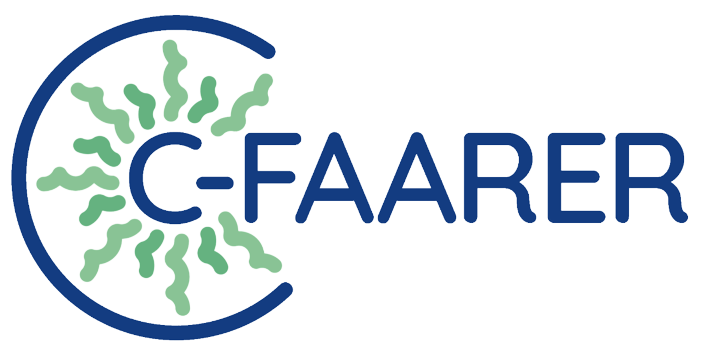Our Reports & Deliverables
-

D1.1 Conceptual Framework for Regenerative Ocean Farming
This deliverable presents a conceptual framework for community-driven regenerative ocean farming, defining key principles and methods that restore ecosystems and support coastal communities. It outlines policy context, case studies, and value chain insights, forming the foundation for future tools and assessments in the C-FAARER project.
-

D1.2 Framework and Vision Report, and Presentation Materials
This deliverable translates the C-FAARER conceptual framework into practical tools, including presentation materials and a self-assessment toolkit. It visualizes the regenerative ocean farming system, showcases industry exemplars, and provides guidance for farmers to evaluate and improve ecological and socio-economic performance.
-

D2.1 Feasibility and Innovation Assessments – Ocean Farming and Environment
This deliverable assesses the feasibility of community-driven regenerative ocean farming, focusing on seaweed cultivation. It combines literature review and interviews with Norwegian seaweed farmers to examine production methods, environmental impacts, innovation needs, business models, and regulatory conditions. The findings inform the transition to sustainable and scalable seaweed aquaculture in Europe.
-

D2.2 NSA Cluster Insights Report - Technical and Operational
This deliverable provides in-depth insights from follow-up case studies of seaweed farms in the Norwegian Seaweed Association cluster. It explores technical innovations, operational strategies, and environmental practices that align with regenerative aquaculture. The report highlights real-world experiences, challenges, and lessons.
-

D3.1 NSA Cluster Insights Report - Socio-Economic and Business
This deliverable explores the socio-economic and business dimensions of Norway’s seaweed sector through the lens of the Norwegian Seaweed Association cluster. It presents case studies and other stakeholder insights to highlight community engagement, rural development, and hybrid business models, offering recommendations for scaling a sustainable and collaborative seaweed industry.
-

D4.1 NSA Cluster Insights Report - Valorisation of the regenerative aquaculture products
This deliverable examines how members of the Norwegian Seaweed Association add value to regenerative aquaculture products through processing and product innovation. It presents case studies highlighting biomass applications in food, feed, skincare, and ecosystem services, while exploring processing methods, energy use, and sustainability trade-offs across the value chain.
-

D4.2 Feasibility and Innovation Assessments – Markets and Value Chains
This deliverable explores the feasibility and innovation potential of seaweed as a key product in regenerative ocean farming, focusing on quality traits, processing methods, and value chain development. It examines how regenerative practices affect biomass quality, highlights preservation and stabilization techniques such as drying, freezing, and fermentation, and evaluates technologies that support energy efficiency, full biomass utilization, and reduced environmental impact. The report also assesses market opportunities, product applications, and downstream value chains, aiming to guide decision-making and support the transition to sustainable marine production systems.
-

D5.2 Policy white paper with recommendations and a roadmap for Ocean Mission actions
The C-FAARER White Paper outlines key lessons and policy recommendations to advance regenerative seaweed farming in Europe. It draws on two years of stakeholder engagement, field insights, and research to highlight opportunities for community-led approaches, improved licensing, market development, and ecosystem-based management.
-

D5.3 Practice Guidebook supporting new ventures into regenerative ocean farming
This guidebook offers a practical learning tool for new and early-stage regenerative ocean farming ventures. It is structured as a modular training program that includes five key topics: an introduction to regenerative ocean farming, business models, financing, market trends, and technical considerations. Designed for use in workshops or self-directed learning, the guidebook combines slides and tutor notes with real-world case studies and business model templates. It draws on insights from the C-FAARER project, NBS EduWorld, and other initiatives, aiming to equip entrepreneurs with the knowledge and tools needed to launch and scale sustainable ocean farming businesses.
